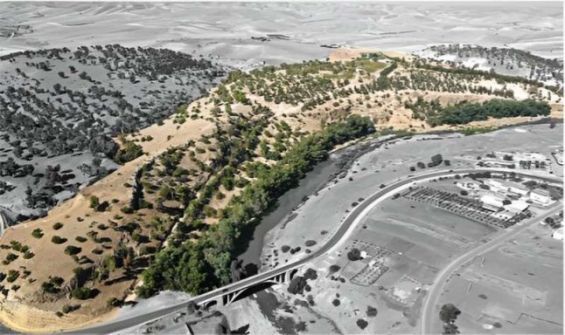North Africa, including Morocco, has played a significant role in the development of human civilization since ancient times. This is demonstrated by a new discovery that highlights how this strategic region, bordered by the Sahara Desert to the south and the Mediterranean Sea to the north, has long been a crossroads for cultures and civilizations.
However, the historical puzzle of the region remains incomplete, with little known about its history during the Holocene period, particularly between 4000 and 1000 BC. Recent archaeological discoveries in Morocco are beginning to fill in the gaps, revealing evidence of farming, social organization, and long-distance trade during this prehistoric era.
A study published Monday in the academic journal Antiquity, which focuses on archaeology, details findings from investigations at Oued Beht, a watercourse in northern Morocco and a tributary of the Sebou River. These investigations reveal that Morocco was home to an unknown farming society dating back to approximately 3400–2900 BC.
Earliest and largest agricultural complex in Africa discovered in Morocco
«This is currently the earliest and largest agricultural complex in Africa beyond the Nile corridor», states the study, conducted by an international team of researchers from Morocco, the UK, Italy, and Spain.
At Oued Beht, archaeologists uncovered «pottery and lithics, along with numerous pits». They believe these findings belong to «a community that brings the Maghreb into dialogue with contemporaneous wider western Mediterranean developments».
The researchers also discovered domesticated plant and animal remains, all dating to the Final Neolithic period.
These findings suggest that the Maghreb played a more crucial role in the development of Mediterranean and broader African history than previously understood.
«For over thirty years, I have been convinced that Mediterranean archaeology has been missing something fundamental in later prehistoric North Africa», said Prof. Cyprian Broodbank from Cambridge University. «Now, at last, we know that was right, and we can begin to think in new ways that acknowledge the dynamic contribution of Africans to the emergence and interactions of early Mediterranean societies», he told Phys Org.
The unique geographical location of the region, combined with its rich archaeological record, makes it an invaluable source for understanding the history of human civilization.
«It is crucial to consider Oued Beht within a wider co-evolving and connective framework, embracing peoples on both sides of the Mediterranean-Atlantic gateway during the later fourth and third millennia BC—and, despite the likelihood of movement in both directions, to recognize it as a distinctively African-based community that contributed substantially to shaping that social world», the researchers concluded.





 chargement...
chargement...













